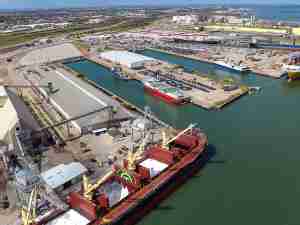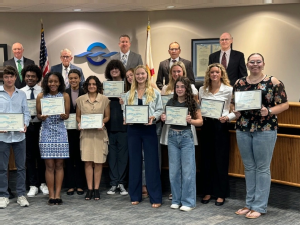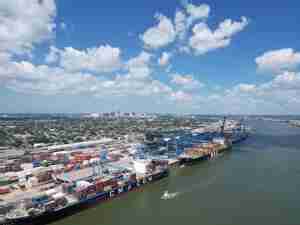The Committee on Transportation and Infrastructure passed a number of bills today on a unanimous, bipartisan basis, including a bill to reform how the federal government manages its real property portfolio and potentially save billions of taxpayer dollars, as well as legislation to enhance maritime safety in response to the tragic loss of the EL FARO in 2015.
H.R. 6194, the Real Estate Assets and Leasing (REAL) Reform Act of 2018 is legislation introduced in the House by Subcommittee on Economic Development, Public Buildings, and Emergency Management Chairman Lou Barletta (R-PA). The bill reforms the General Services Administration’s (GSA) management of federal real estate assets and provides the civilian federal government landlord agency with the necessary tools to negotiate the best lease deals possible on behalf of the American taxpayers. Enabling the agency to better facilitate consolidations, reduce space, and take advantage of the current buyer’s market has the potential to save billions of dollars. The bill also strengthens oversight of federal construction projects, and ensures that such projects remain on or under budget. Furthermore, the legislation improves public building security by establishing more accountability and oversight of the Federal Protective Service (FPS).
“In my role as subcommittee chairman, I’ve been focused on reducing the federal footprint by consolidating space and improving space utilization, and I’m proud to say that through these efforts, we have already saved taxpayers $3.7 billion, but there is more work to be done,” Barletta said. “The REAL Reform Act builds on this progress by allowing the government to negotiate better rental rates and concessions, which ultimately means more savings for the taxpayer. I thank Chairman Shuster for his constant support on this important issue, and look forward to continuing our efforts to make Washington work for the people of Pennsylvania and the rest of the Nation.”
H.R. 6175, the Maritime Safety Act of 2018, implements the Commandant of the Coast Guard’s final action memo in response to the sinking of the EL FARO. The legislation was introduced in the House by Subcommittee on Coast Guard and Maritime Transportation Chairman Duncan Hunter (R-CA). The bill includes provisions that require the Coast Guard to ensure proper vessel inspections are undertaken, that vessels and crew have necessary safety equipment and timely weather forecast charts, and that voyage data recorders float free after an accident.
“The loss of the U.S.-flagged cargo vessel EL FARO, along with its 33-member crew, ranks as one of the worst maritime disasters in U.S. history, and resulted in the highest death toll from a U.S. commercial vessel sinking in almost 40 years,” Hunter said. “The Nation relies on our merchant mariners and the U.S.-flagged ships they sail, and we owe it to them to learn from the lessons of past tragedies. The Maritime Safety Act of 2018 incorporates a number of safety recommendations from the EL FARO tragedy, and I’m confident that it will make great strides in improving the safety of our mariners.”
“Today the Committee approved common sense reforms to help protect taxpayer dollars through the sensible management of federal real property, important maritime safety legislation to help address issues identified by the Coast Guard in the sinking of the EL FARO, and additional bipartisan measures,” said Committee on Transportation and Infrastructure Chairman Bill Shuster (R-PA). “I commend Chairman Barletta, Chairman Hunter, and the other sponsors of today’s legislation for their hard work to improve the safety and efficiency of our transportation and infrastructure, and to improve the stewardship of the American people’s tax dollars.”
In addition, the Committee unanimously approved the following measures at today’s markup.
H.R. 6206 – Coast Guard Blue Technology Center of Expertise Act – Establishes a Blue Technology Center of Expertise to help promote awareness within the Coast Guard of the range and diversity of so-called Blue Technologies – new and emerging maritime domain awareness technologies, especially more cost effective unmanned technologies – and how the use of such technologies could enhance Coast Guard mission readiness and performance. The bill also enables the sharing and dissemination of Blue Technology information between the private sector, academia, nonprofits and the Coast Guard.
S. 756 – Save Our Seas Act of 2017 – Reauthorizes and revises the Marine Debris Program to require the National Oceanic and Atmospheric Administration (NOAA) to work with other agencies including the State Department to address international sources of marine debris and promote international action to reduce marine debris; makes funds available to NOAA to clean up and respond to severe marine debris events; expands Interagency Marine Debris Coordinating Committee to include a senior officials from State Department and Interior Department.
H.R. 5846 – Promoting Flood Risk Mitigation Act – Requires the Government Accountability Office to conduct a study of the flood loss buyout program of the Federal Emergency Management Agency.
H.R. 3906 – Innovative Stormwater Infrastructure Act of 2017 – Establishes a stormwater infrastructure funding task force to look at means for funding stormwater infrastructure.
H.R. 66 – Route 66 Centennial Commission Act – Establishes a commission to recommend to Congress how best to commemorate Route 66 on its 100-year anniversary in 2026, and requires the Secretary of Transportation to prepare a plan for the preservation of Route 66.
H.R. 3460 – To designate the United States courthouse located at 323 East Chapel Hill Street in Durham, North Carolina, as the “John Hervey Wheeler United States Courthouse.”
H.R. 5772 – To designate the J. Marvin Jones Federal Building and Courthouse in Amarillo, Texas, as the "J. Marvin Jones Federal Building and Mary Lou Robinson United States Courthouse.”
20 General Services Administration (GSA) Capital Investment and Leasing Program (CILP) prospectuses.










